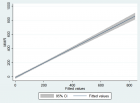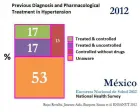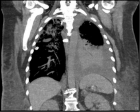Abstract
Research Article
Knowledge, perception and practices of Suez Canal University students regarding Hepatitis C Virus infection risk and means of prevention
Nermine Elmaraghy*, Hesham El-Sayed, Sohair Mehanna, Adel Hassan, Mahmoud Sheded, Maha Abdel-Fattah, Samar Elfiky, Nehal Lotfy and Zeinab Khadr
Published: 05 July, 2019 | Volume 2 - Issue 1 | Pages: 020-027
Background: Egypt has the highest prevalence of HCV in the world as more than 10% of population suffers from HCV infection. High prevalence of HCV in Egypt represents a great risk to the whole population that requires aggressive mass awareness regarding routes of infection and means of prevention.
Aim: To determine the knowledge and practices of university students in 5 different faculties in Suez Canal University regarding HCV infection and means of prevention.
Materials and method: A cross sectional study was conducted in five university faculties in Suez Canal University.
Results: The study included 698 students from the faculties of Medicine, Pharmacy, Dentistry, Nursing and Education in Suez Canal University in Ismailia city in Egypt. There was a statistically significant difference regarding the knowledge about the diagnosis, complications and routes of transmission total knowledge score for HCV among the different faculties.
Conclusion and Recommendations: Knowledge and practices of university students in Suez Canal University is partial to weak especially in students of non-biological sciences who have less close contact with patients
Read Full Article HTML DOI: 10.29328/journal.ijcmbt.1001007 Cite this Article Read Full Article PDF
Keywords:
Knowledge; Perception; Practices; HCV; Students
References
- Kamal SM, Abdelhakam SA. Hepatitis C in Developing Countries. J Academic Press. 2018; 41-56.
- Westbrook RH, Dusheiko G. Natural history of hepatitis C J Hepatol. 2014; 4: 61: 58–68.[PubMed]
- Central Agency for Public Mobilization and Statistics, CAPMAS [webpage on the Internet]. Statistical Yearbook – National Accounts: Expenditure on GDP at Market 12/13 – 14/15. http://www.capmas.gov.eg/Pages/StaticPages.aspx?page_id=5034.
- Kermode M, Holmes W, Langkham B, Thomas MS, Gifford S. HIV related knowledge, attitudes and risk perception amongst nurses, doctors and other healthcare workers in rural India. J Indian J Med Res. 2005; 122: 258–64.[PubMed]
- Nagao Y, Matsuoka H, Kawaguchi T, Ide T, Sata M. HBV and HCV infection in Japanese dental care workers. J Int J Mol Med. 2008; 21: 791–9.[PubMed]
- May MT, Justice AC, Birnie K, Ingle SM, Smith C, et al. Injection drug use and hepatitis C as a risk factor for mortality in HIV infected individuals: the antiretroviral therapy cohort. J Acquir Immune Defic Syndr. 2015; 69: 348-354.[PubMed]
- Okoroiwu HU, Okafor IM, Asemota EA, Okpokam DC. Seroprevalence of transfusion-transmissible infections (HBV, HCV, syphilis and HIV) among prospective blood donors in a tertiary health care facility in calabar, nigeria; an eleven years evaluation. J BMC Public Health. 2018; 18: 645.[PubMed]
- Reis C, Heisler M, Amowitz LL, Moreland RS, Mafeni JO, et al. Discriminatory attitudes and practices by health workers toward patients with HIV/AIDS in Nigeria. J PLoS Med. 2005; 2: 246.[PubMed]
- D’Souza RF, Glynn MJ, Alstead E, Osonayo C, Foster GR. Knowledge of chronic hepatitis C among East London primary care physicians following the Department of Health's educational campaign. J QJM. 2004; 97: 331–6.[PubMed].
- Askarian M, Yadollahi M, Kuochak F, Danaei M, Vakili V, et al. Precautions for health care workers to avoid hepatitis B and C virus infection. Int J Occup Environ Med. 2011; 2: 191-8 [PubMed]
- Higher Education the Arab States. Munir Bashshur, UNESCO Regional Bureau for Education in the Arab States, Bairut-Lebanon. 2004.
- Razi A, ur Rahman R, Naz S, Ghafoor F, Ullah Khan MA. Knowledge attitude and practices of university students regarding hepatitis B and C J ARPN Journal of Agricultural and Biological Science. 2010; 5: 38-43.
- Ghahramani F, Mohammadbeigi A, Mohammadsalehi N. A survey of the students’ knowledge about hepatitis. J Hepat Mon. 2006; 6: 59-62.
- Joukar F, Mansour-Ghanaei F, Soati F, Meskinkhoda P. Knowledge level and attitudes of health care professionals toward patients with hepatitis C infection. J World J Gastroenterol. 2010; 18: 2238-2244.[PubMed]
- Ghanaei R, Joukar F, Souti F, Atrkar-Roushan Z. Knowledge and attitude of medical science students toward hepatitis B and C infections. J Int J Clin Exp Med. 2013; 6: 197-205.[PubMed]
- Todorova TT, Gabriela Tsankova GT, Sankova DT, Kostadinova CV, Lodozova N. knowledge and attitude towards hepatitis b and hepatitis c among dental medicine students. J IMAB. 2015; 21: 810 – 813.
- Abdal M, Al-Mousa K. Knowledge, Attitude, and Practice of HBV vaccination among dentists in primary health care, dental centers and Kuwait university dental clinics ( KUDCs). 2013; 1-23.
- Reddy RS, Swapna LA, Ramesh T, Pradeep K. Knowledge, attitude and practice on hepatitis B prevention among dental professionals in India. J Brazilian J Oral Sci. 2011; 10: 241-245.
- Kadeh H, Saravani S, Golzari P. Knowledge, Attitude and Practice of Dentists towards Patients with HIV, Hepatitis B and Hepatitis C Infections. J Avicenna J Dent Res. 2014; 6: 21348.
- Younis BB, Khan GM, Akhtar P, Chaudhary MA.Vaccination against hepatitis B among doctors at a teaching hospital at Lahore. Pak. J Med Sci. 2001; 17: 229-232.
- Chhabra P, Grover VL, Agrawal KD. Do our medical students have enough knowledge of hepatitis B? A Delhi based study. J Commun Dis. 2005; 4: 221-225. [PubMed].
Similar Articles
-
Oral Candida colonization in HIV-infected patients: Species and antifungal susceptibility in Tripoli/LibyaEllabib M*,Mohamed H,Mokthar E,Ellabib M,El Magrahi H,Eshwika A. Oral Candida colonization in HIV-infected patients: Species and antifungal susceptibility in Tripoli/Libya . . 2018 doi: 10.29328/journal.ijcmbt.1001001; 1: 001-008
-
Knowledge, perception and practices of Suez Canal University students regarding Hepatitis C Virus infection risk and means of preventionNermine Elmaraghy*,Hesham El-Sayed,Sohair Mehanna,Adel Hassan,Mahmoud Sheded,Maha Abdel-Fattah,Samar Elfiky,Nehal Lotfy,Zeinab Khadr. Knowledge, perception and practices of Suez Canal University students regarding Hepatitis C Virus infection risk and means of prevention. . 2019 doi: 10.29328/journal.ijcmbt.1001007; 2: 020-027
-
Incidence of hepatitis B and hepatitis C in Pediatric ward in 2ed March teaching hospital, Sebha: South of LibyaIdress H Attitalla*,Shaban R Bagar,Marei A Altayar,Abdlmanam Fakron,Hosam B Bahnosy. Incidence of hepatitis B and hepatitis C in Pediatric ward in 2ed March teaching hospital, Sebha: South of Libya. . 2021 doi: 10.29328/journal.ijcmbt.1001022; 4: 028-031
Recently Viewed
-
Dual Role of Clinician Managers in Healthcare - Challenges and OpportunitiesAhsana Nazish*. Dual Role of Clinician Managers in Healthcare - Challenges and Opportunities. J Clin Med Exp Images. 2023: doi: 10.29328/journal.jcmei.1001029; 7: 007-013
-
Exceptional cancer responders: A zone-to-goDaniel Gandia,Cecilia Suárez*. Exceptional cancer responders: A zone-to-go. Arch Cancer Sci Ther. 2023: doi: 10.29328/journal.acst.1001033; 7: 001-002
-
The prognostic value of p53 and WT1 expression in cancer: new molecular insights and epigenetics explanations lead to a new medical hypothesisAhed J Alkhatib* and Ilham Ahed Alkhatib. The prognostic value of p53 and WT1 expression in cancer: new molecular insights and epigenetics explanations lead to a new medical hypothesis. Arch Cancer Sci Ther. 2023: doi: 10.29328/journal.acst.1001034; 7: 003-009
-
Anticancer Activity of Genistin: A Short ReviewMd Mizanur Rahaman*, Md Iqbal Sikder, Muhammad Ali Khan and Muhammad Torequl Islam. Anticancer Activity of Genistin: A Short Review. Arch Cancer Sci Ther. 2023: doi: 10.29328/journal.acst.1001035; 7: 010-013
-
Research Progress of BTG2 as a Tumor Prognostic FactorWanting Yang, Peizheng Yang, Yan Li, Yinfeng Yang*, Jinghui Wang*. Research Progress of BTG2 as a Tumor Prognostic Factor. Arch Cancer Sci Ther. 2023: doi: 10.29328/journal.acst.1001036; 7: 014-017
Most Viewed
-
Impact of Latex Sensitization on Asthma and Rhinitis Progression: A Study at Abidjan-Cocody University Hospital - Côte d’Ivoire (Progression of Asthma and Rhinitis related to Latex Sensitization)Dasse Sery Romuald*, KL Siransy, N Koffi, RO Yeboah, EK Nguessan, HA Adou, VP Goran-Kouacou, AU Assi, JY Seri, S Moussa, D Oura, CL Memel, H Koya, E Atoukoula. Impact of Latex Sensitization on Asthma and Rhinitis Progression: A Study at Abidjan-Cocody University Hospital - Côte d’Ivoire (Progression of Asthma and Rhinitis related to Latex Sensitization). Arch Asthma Allergy Immunol. 2024 doi: 10.29328/journal.aaai.1001035; 8: 007-012
-
Causal Link between Human Blood Metabolites and Asthma: An Investigation Using Mendelian RandomizationYong-Qing Zhu, Xiao-Yan Meng, Jing-Hua Yang*. Causal Link between Human Blood Metabolites and Asthma: An Investigation Using Mendelian Randomization. Arch Asthma Allergy Immunol. 2023 doi: 10.29328/journal.aaai.1001032; 7: 012-022
-
An algorithm to safely manage oral food challenge in an office-based setting for children with multiple food allergiesNathalie Cottel,Aïcha Dieme,Véronique Orcel,Yannick Chantran,Mélisande Bourgoin-Heck,Jocelyne Just. An algorithm to safely manage oral food challenge in an office-based setting for children with multiple food allergies. Arch Asthma Allergy Immunol. 2021 doi: 10.29328/journal.aaai.1001027; 5: 030-037
-
Snow white: an allergic girl?Oreste Vittore Brenna*. Snow white: an allergic girl?. Arch Asthma Allergy Immunol. 2022 doi: 10.29328/journal.aaai.1001029; 6: 001-002
-
Cytokine intoxication as a model of cell apoptosis and predict of schizophrenia - like affective disordersElena Viktorovna Drozdova*. Cytokine intoxication as a model of cell apoptosis and predict of schizophrenia - like affective disorders. Arch Asthma Allergy Immunol. 2021 doi: 10.29328/journal.aaai.1001028; 5: 038-040

If you are already a member of our network and need to keep track of any developments regarding a question you have already submitted, click "take me to my Query."



















































































































































